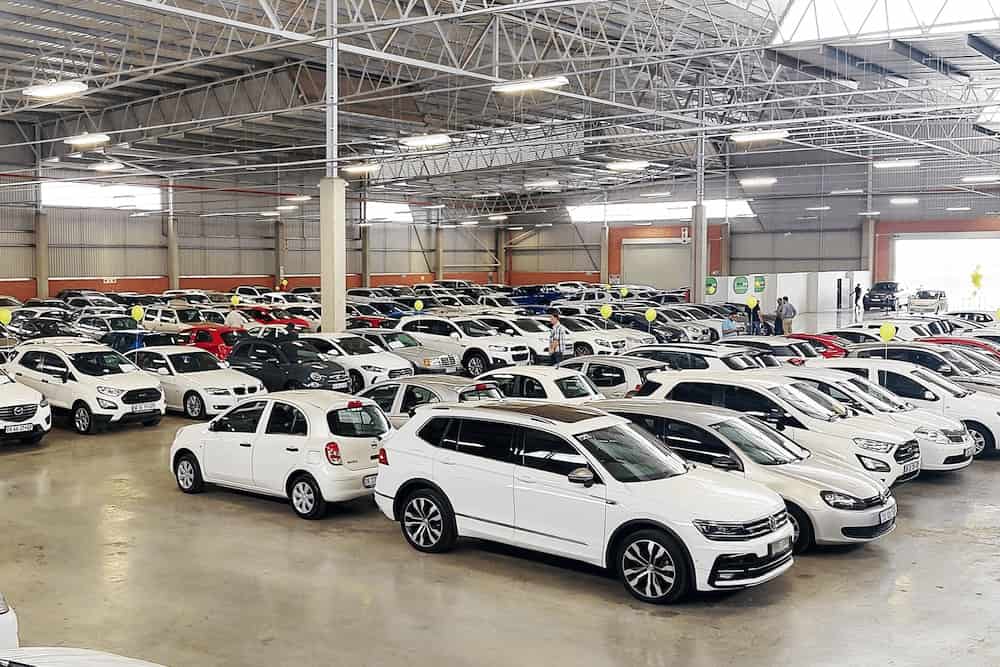
Buying a used car is like uncovering a hidden gem it’s thrilling, cost-effective, and often comes with its own set of mysteries. But unlike a brand-new vehicle with a factory warranty, a pre-owned ride leaves you wondering: What if something goes wrong? The answer lies in securing the best possible warranty, turning uncertainty into peace of mind. And if you’re dealing with used car dealers Swindon, knowing how to navigate warranty options can mean the difference between a smooth ride and an expensive breakdown.
Why a Warranty Isn’t Just Paper It’s Protection
A warranty on a used car isn’t just a formality it’s your financial safety net. Modern vehicles are complex machines with hundreds of moving parts, and even the most reliable models can develop issues over time. Without coverage, a single transmission failure or electrical glitch could cost thousands.
But not all warranties are created equal. Some are comprehensive, covering everything from the engine to the infotainment system. Others are bare-bones, only protecting against catastrophic failures. The trick is knowing what to look for especially when dealing with used car dealers Swindon, where policies can vary widely.
The Three Warranty Types You’ll Encounter
When shopping for a used car, you’ll typically come across three main types of warranties: manufacturer’s remaining coverage, dealer-provided warranties, and third-party extended plans.
Manufacturer warranties often transfer with the vehicle, meaning if the original owner bought a five-year plan, you might still have a year or two left. This is the gold standard, as it’s backed by the automaker. However, most used cars fall outside this window, leaving you reliant on dealer or third-party options.
Dealer warranties are common among used car dealers Swindon, but their terms can be tricky. Some offer "certified pre-owned" programs with robust coverage, while others provide limited warranties that barely scratch the surface. Always read the fine print some exclude wear-and-tear items like brakes and clutches, while others have strict mileage caps.
Third-party warranties are the wildcards. They can be affordable and flexible, but they also come with loopholes. Some require pre-approval for repairs, only work with specific mechanics, or deny claims for vague reasons. Researching reviews and complaint histories is crucial before committing.
Negotiating the Best Warranty Deal
Most buyers focus on haggling the car’s price but forget that warranties are negotiable too. Dealers often mark up warranty costs significantly, meaning there’s room to talk them down. If you’re working with used car dealers Swindon, try these tactics:
First, ask for a warranty breakdown. What exactly is covered? Are there deductibles? Is there a claims process? The more transparent the dealer, the more trustworthy the warranty.
Second, compare prices. If the dealer offers a £1,000 warranty, check if third-party providers offer similar coverage for £700. Use this as leverage many dealers will match or beat outside prices to keep your business.
Finally, consider bundling. Some dealers discount warranties if you finance through them or purchase additional services like gap insurance. Just ensure the bundle actually saves you money rather than padding the dealer’s profit.
Red Flags That Signal a Bad Warranty
Not all warranties are worth the paper they’re printed on. Some are designed to deny claims, leaving you stranded when you need help most. Watch for these warning signs:
Vague coverage terms like "major components" without specifics. A good warranty lists exactly what’s included (engine, transmission, drivetrain) and what’s not (electronics, suspension).
Overly restrictive repair conditions. Some warranties force you to use a single repair shop or require multiple diagnostics before approving fixes. This can delay repairs and increase costs.
Too-good-to-be-true pricing. If a warranty is suspiciously cheap, it probably covers next to nothing. Always cross-check coverage levels with the price.
For buyers exploring options at used car dealers Swindon, these red flags can help avoid costly mistakes.
How Mileage and Age Affect Your Warranty
A car’s mileage and age directly impact warranty availability and cost. Most extended warranties cap coverage at a certain mileage (often 100,000 miles) or age (usually 10-12 years). High-mileage vehicles might only qualify for basic powertrain coverage, while low-mileage used cars can still secure comprehensive plans.
If you’re buying an older model with moderate mileage, look for warranties specializing in "high-mileage" coverage. These tailor protections to common wear-and-tear issues in well-driven cars.
The Rise of Pay-As-You-Go Warranties
A newer trend in the warranty space is flexible, subscription-style coverage. Instead of paying upfront for a multi-year plan, some providers now offer monthly payment options. Cancel anytime without penalty ideal if you sell the car sooner than expected.
This model is gaining traction among younger buyers who prefer flexibility over long-term commitments. For those purchasing from used car dealers Swindon, it’s worth asking if such options exist.
Where to Research and Compare Warranties
Before committing, spend time researching. Websites like Warranty Direct (replace with a relevant link) allow side-by-side comparisons of different plans, helping you spot the best value. Customer reviews and industry ratings (like those from Defaqto) can also reveal which providers honor claims fairly.
Concluding it up: Drive Covered, Drive Confident
A warranty transforms a used car from a gamble into a secure investment. Whether you’re dealing with used car dealers Swindon or private sellers, understanding coverage types, negotiating effectively, and spotting red flags ensures you get the best protection.
Don’t skip this step what seems like an unnecessary cost today could save you thousands tomorrow. Your pre-owned ride deserves a warranty that’s as reliable as the vehicle itself.

Comments on “How to Get the Best Warranty for Your Pre-Owned Ride”